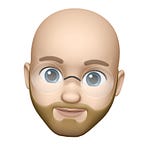What’s in a name? Product Management and its specialisations
Product management is a hot topic these days, and with the rapid rise in adoption, it’s clear that a Product Manager can bring a lot of value when building software. A side effect of this explosion in popularity has led everyone to have their own definition of a “Product Manager”. This has led to confusing titles and terms that mean different things in different companies.
However, if you ignore the titles and look at the role descriptions, clear specialities of how it is being implemented are emerging. I’m going to unpack these in this post.
But first…
Some things worth noting about how my perspective may differ from yours:
- Product Management ≠ Project Management. Product, as I see it, focuses on the strategy of what and the why, while Project focuses on the delivery of when and who.
- Product Owner is the title of a role used in Scrum but is also sometimes used to describe a “manager of products” or “mini CEO of the product”. That’s called an MD, Director, or something else and not a PM in my context.
- The best description of a Product Manager that I’ve come across is someone who “identifies how to deliver value to customers in line with the business strategy while understanding technical constraints.” (Thanks Martin).
- There are many other “Product” related roles (like Product Designer or Product Ops, etc.) that are more specialised skills. These are adjacent to what I’m referring to here. Those are often called Product Managers but don’t cover all three abovementioned areas. There are 70+ Product-related roles.
The Product Role Specialities
The most common type is a General Product Manager. They do a wide range of product management-type activities and work across a broad range of tasks. This is less of a specialisation and more of a catch-all. It’s common in companies that need someone to pick up the pieces that no one else does and sometimes covers customer research, road mapping, QA, PRDs, scrum, and everything in between. This varies depending on the team and skills but is typically found in less mature or more chaotic companies.
What separates the General Product Manager from other types of product roles is how specialised they can be. Four different product management specialities come to mind.
The first is the Innovation Product Manager, who builds new products from 0 to 1. They focus on launching new products. An Innovation Product Manager starts at the very beginning and isn’t optimising an existing product. They launch new things.
Then you have the Platform Product Manager, which is the opposite of that. They are generally in B2B enterprise companies with large interconnected platforms and complex API integrations. Usually, it’s an entire platform that you’re building that connects many different services. It’s a large web of existing systems where you focus on improvements and optimisations.
The next is a Growth Product Manager, who creates growth loops to drive user engagement, acquisition, retention, and referrals. Often they have a background in marketing or paid media. They look at optimising the product for growth and improving viral effects. This role differs from traditional marketing, which focuses on bringing users into the product through external channels, such as paid advertising. Instead, a Growth Product Manager focuses on creating and optimising internal growth loops within the product to drive uptake and engagement. They need to be very data-driven with strong analytics backgrounds. Their primary concern is metrics such as activation rates, engagement rates, retention curves and making changes to the product to drive growth.
Finally, you have the Technical Product Manager. A Technical Product Manager is needed in roles that require specialised knowledge of a specific technology. They need to understand the nuances of that technology to build products in that space. A specialisation might be in payments or machine learning and AI or blockchain [Insert your buzzword of choice here.]
For example, a blockchain Technical Product Manager would struggle if they do not understand the dynamics of token economics or the behaviour of Web3 communities and how to incentivise them. A product manager in the IoT space will need to deeply understand mesh networks, the relevant protocols, how they communicate, and the physical details of batteries and interference. A product manager in the machine learning (ML) space will need at least a base-level understanding of how ML training models work, what Jupyter notebooks are, and how the technology fits together.
So what?
Because of the broad and undefined ways that Product Management is applied, it can be confusing to know what is meant. Specialisations can help with that.
If you’re looking for a role in product, you can stand out by positioning your CV to better align with one of these specialities. As an employer, you can use it to identify what you need in your context and filter candidates accordingly. As a practising product manager, you can use these as a way to focus your career and be more intentional about how you grow.
If you can get past the jargon used in product-related titles, specialisations are a filter that can help find some signal in the noise.
Thanks to Ebube for helping with this draft.
